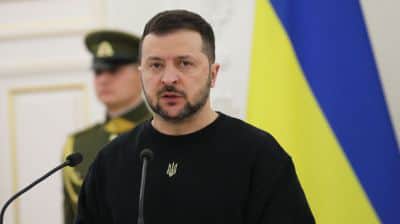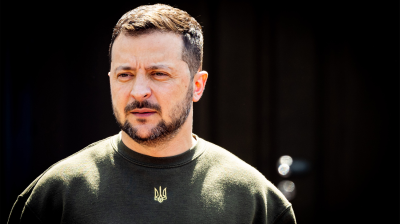EU may not approve €20 billion military support plan for Ukraine
The European Union's plan to spend up to €20 billion on military aid to Ukraine has met resistance from some EU countries and may not be implemented in its current form.
Source: Reuters with reference to its diplomatic sources, as reported by European Pravda
Details: In July, Josep Borrell, High Representative of the EU for Foreign Affairs and Security Policy, proposed that a dedicated €20 billion fund to support the Ukrainian army be created for the next four years.
The fund is expected to help countries cover their own costs of purchasing and donating items such as ammunition, missiles and tanks to Ukraine, and would help pay to train Ukrainian soldiers.
Although the EU already provides similar assistance to Ukraine through the European Peace Facility, it is provided in tranches that can be blocked by individual member states. In addition, the fund is rapidly running out of money, and only recently had to be increased.
EU defence ministers are preparing to discuss the plan in Brussels on Tuesday. However, diplomats say many countries, including EU heavyweight Germany, have expressed their reservations about committing such large sums several years in advance.
"I'm not going to declare it dead at this point yet. But of course, improvements can always be made. Germany has had a lot of questions... and rightfully so. We're talking about a lot of money," said a high-ranking EU diplomat on Friday, 10 November, on condition of anonymity.
The EU countries’ governments have highlighted the necessity that the EU long-term military assistance must be aligned with the security packages that individual member states are negotiating with Kyiv. This makes it difficult to agree on the amount of aid while negotiations are ongoing. At an EU summit last month, German Chancellor Olaf Scholz said the focus should be on such bilateral packages for now.
Some EU members also argue that it will be difficult for them to take on large long-term commitments due to limited domestic budgets.
"For some member states, there is the reality of the public finances," said another EU diplomat.
A third EU diplomat mentioned that the probability of adopting Borrell's initial proposal was diminishing, but numerous countries still want commitments at EU level.
All three diplomats suggested that the EU might choose to meet its commitments annually rather than agreeing to a plan for a larger sum spanning over four years.
The debate over military aid comes at a time when EU countries are also debating a proposal to provide Ukraine with €50 billion in economic aid.
The EU also faces problems with other aspects of its military aid to Ukraine. Many officials and diplomats say that the European Union will struggle to meet the goal of providing Ukraine with one million rounds of artillery ammunition by March 2024.
Support UP or become our patron!





